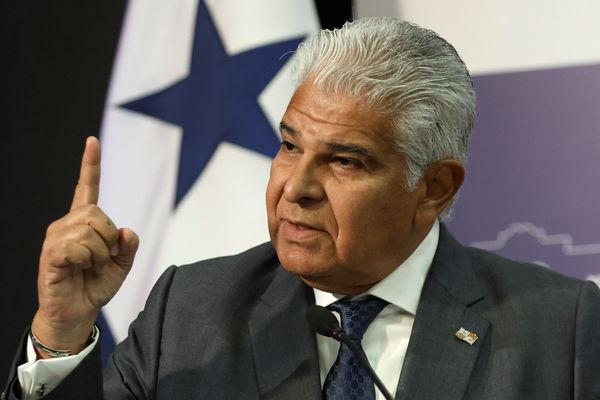Resource consent applications have been lodged for the proposed $4 billion Lake Onslow pumped hydro storage project designed to grapple with New Zealand's dry-year electricity woes.
The applications made by the Ministry of Business, Innovation and Employment (MBIE) for geotechnical, geological and hydrogeological investigations relate to the NZ Battery Project, which has pitched the man-made lake, 20km east of Roxburgh, as its lead and most logical solution.
It would be the biggest infrastructure project in New Zealand since "Think Big" in the 1980s, which culminated in the construction of the Clyde Dam.
The Onslow proposal would raise the footprint of the lake from 700m above sea level to 760m. The maximum depth of Lake Onslow at present is 10m-20m.
The raising of the lake will affect landowners such as Gray Pannet.
Based on projections for the lake level, he would lose about 2300ha of his 4000ha Teviot Valley property Limehills Herefords stud.
"The impact on this farm would be catastrophic."
The land lost to water was now used for dry-weather summer grazing, he said.
"I'd lose all of that."
Pannet also criticised MBIE's communication and said landowners found out about the scheme through the media.
MBIE energy projects and programmes manager Andrew Millar said consents were being applied for in stages, depending on the planned timing of the associated fieldwork.
"Not all consents that are applied for or granted will necessarily be needed."
Consent applications had been lodged with the CODC and the Otago Regional Council, and wildlife permits were lodged with the Department of Conservation (Doc), some of which had been approved but came with conditions. Work could not start unless those conditions were met, he said.
Some fieldwork had been done, such as environmental and hydrological fieldwork in May. That was paused over winter and then resumed in September.
That work was mostly complete and had involved Doc sampling streams for native fish and insects, and botanical and ecological field surveys of birds, lizards and other species.
MBIE also commissioned Niwa and the Cawthron Institute to study hydrology and ecology at Lake Onslow, how those could change if a pumped hydro scheme was developed and how a much larger lake with fluctuating water levels might behave, Millar said.
"A monitoring buoy in the lake and a meteorological station on Mt Teviot are providing data in real time."
If pre-work conditions could be met, the first part of the detailed geotechnical investigation could start in the coming weeks.
"We will be sharing more information with the local community as soon as we have certainty on this work."
Fieldwork took place on both public and private land and MBIE had been talking directly with affected landowners to gain approval for fieldwork on their properties.
MBIE appreciated exploratory work created uncertainty for the community and more work, including geotechnical investigations, was required to determine what locations may be appropriate for the dam and tunnel route.
The NZ Battery Project
• The project is investigating a range of possible solutions to address the dry-year problem, when hydro-electricity lakes receive insufficient inflows and New Zealand burns fossil fuels to make up the shortfall.
• Other possible solutions such as smaller pumped hydro schemes at other locations, other hydro options, and the five alternative technologies, including bioenergy, hydrogen and new ways of using geothermal, are also being investigated.
MBIE expects to deliver the results of its up to $30 million study on the proposed scheme in May, before making a final decision on its feasibility in December.
The Central Otago District Council (CODC) confirmed it had received two consent applications.
One, for geotech, bore hole and test pits, had been granted.
A second application was formally received on Friday for similar matters.
The CODC could not state the number of consents required, as that would be determined by the project's evolution and its feasibility.







